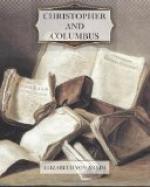“It’s just got to help it,” said he.
“But why shouldn’t it sing?”
“Complaints.”
“But it always has sung.”
“That is so. And it has sung once too often. It’s unpopular in this hotel, that canary of yours. It’s just got to rest a while. Take it easy. Sit quiet on its perch and think.”
“But it won’t sit quiet and think.”
“Well, I’ve told you,” he said, going away.
This was the bird that had been seen arriving at the Cosmopolitan about a week before by the lawyer, and it had piercingly sung ever since. It sang, that is, as long as there was any light, real or artificial, to sing by. The boy who carried it from the shop for the twins said its cage was to be hung in a window in the sun, or it couldn’t do itself justice. But electric light also enabled it to do itself justice, the twins discovered, and if they sat up late the canary sat up late too, singing as loudly and as mechanically as if it hadn’t been a real canary at all, but something clever and American with a machine inside it.
Secretly the twins didn’t like it. Shocked at its loud behaviour, they had very soon agreed that it was no lady, but Anna-Rose was determined to have it at The Open Arms because of her conviction that no house showing the trail of a woman’s hand was without a canary. That, and a workbag. She bought them both the same day. The workbag didn’t matter, because it kept quiet; but the canary was a very big, very yellow bird, much bigger and yellower than the frailer canaries of a more exhausted civilization, and quite incapable, unless it was pitch dark, of keeping quiet for a minute. Evidently, as Anna-Felicitas said, it had a great many lungs. Her idea of lungs, in spite of her time among them and similar objects at a hospital, was what it had always been: that they were things like pink macaroni strung across a frame of bones on the principle of a lyre or harp, and producing noises. She thought the canary had unusual numbers of these pink strings, and all of them of the biggest and dearest kind of macaroni.
The other guests at the Cosmopolitan had been rather restive from the first on account of this bird, but felt so indulgent toward its owners, those cute little relations or charges or whatever they were of Teapot Twist’s, that they bore its singing without complaint. But on the evening of the day the Annas had the interesting conversation with Mr. and Mrs. Ridding and Miss Heap, two definite complaints were lodged in the office, and one was from Mrs. Ridding and the other was from Miss Heap.
The manager, as has been said, was already sensitive about the canary. Its cage was straining his electric light cord, and its food, assiduously administered in quantities exceeding its capacity, littered the expensive pink pile carpet. He therefore lent a ready ear and sent up a peremptory message; and while the message was going up, Miss Heap, who had come herself with her complaint, stayed on discussing the Twist and Twinkler party.




